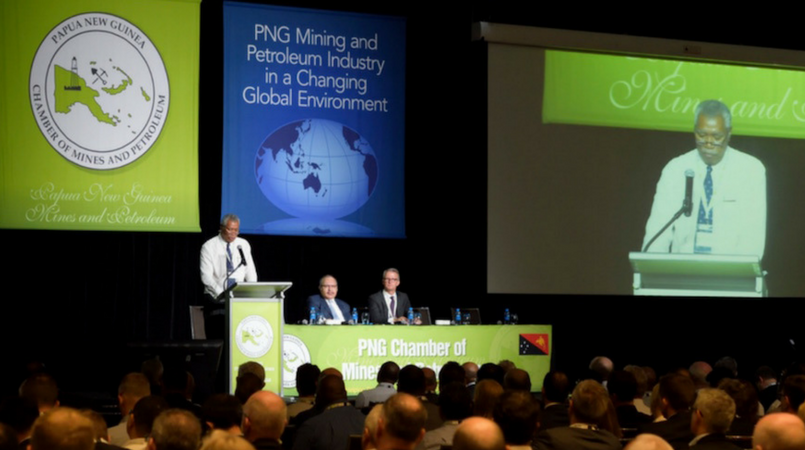
The PNG Chamber of Mines and Petroleum has expressed grave concerns at the passage of the Mineral Resources Authority (MRA) Bill 2017, saying the changes are sending a very wrong signal to investors.
The Chamber President, Gerea Aopi, said today the MRA has been a success story for Papua New Guinea and the Government.
“The Chamber and the mining industry believe that the performance of MRA over the last decade is a credit to Government, and the excellent operating standards within the mining sector are an indicator of the good work of the regulator. It would be a tragedy for all mining industry stakeholders if this progress is lost,” Aopi said in a statement.
“MRA has managed the regulatory environment for mining, as an arm of government, in a firm, fair and responsible manner. It has earned the respect and support of industry and other stakeholders, including landowners, and contributed to rising professional standards throughout the mining sector.”
Aopi said mineral exploration and production companies have three major concerns about the legislative changes:
- Removal of direct industry representation on the MRA Board
- The doubling of the production levy rate from 0.25 percent to 0.5 percent and
- The allocation and remittance of 35 percent of the annual production levies directly to the Department of Mineral Policy & Geohazards Management.
Aopi said the initial impetus for the establishment of MRA was provided by the European Union, which decided after the severe 1997 drought that the strengthening of the regulatory regime for mining would contribute significantly to diversification of the PNG economy and help mitigate unexpected emergencies such as drought.
An initial 50 million Euro grant (about K200 million) under a mining sector support program in 2002 led to the implementation of a range of projects and detailed discussions and planning between all stakeholders. This laid the groundwork for the establishment of MRA, which began operations in 2006.
The MRA was also created so that it can be adequately funded, and effectively regulate an industry that was very critical to the PNG economy.
“Successive PNG Governments have benefitted from the independent role played by MRA in regulating the minerals sector, including the operational and safety aspects of PNG’s mines which have enable PNG mining operations to be benchmarked against global standards,” stated Aopi.
“By not allowing industry representation on the MRA Board, the Government has effectively negated the intent of the original legislation of ensuring effective and efficient administration and regulation of the mining sector through a meaningful involvement of industry and private sector at the Board level.”
Aopi said the doubling of the production levy was a de facto increase in tax and an additional burden on existing and future mining projects, even though the current levy has proved to be adequate for the funding of MRA operations.
“The new Act will see 35 percent of the increased levy diverted directly for the use of the Department of Mineral Policy and Geohazards Management. These funds can also be used for State obligations under Project Agreements entered into by the State and for ‘development initiatives’ within project areas approved by the MRA Board.
“The industry is gravely concerned the diversion of funding to outside activities may lead to a deterioration of MRA’s capacity.
“This is wrong and a major shift in Government policy, under which an industry tax levy can be used to directly fund another Department outside the budgetary process and to underwrite social obligations of the State managed by MRA as well as the Department of Mineral Policy and Geohazards Management.”
Aopi said for many years, successive Governments have reaffirmed their confidence in the MRA “model”.
“Why are we making these changes now to weaken a very important Government body that has performed exceptionally well? The benefit of having an effective regulator over many years can clearly be seen in the professional way issues are managed in the mining sector.
“Indeed, it is a working model that is being discussed by Government and industry to be applied to the oil and gas sector to help manage the issues impacting their operations,” he said.
The Chamber is also very concerned about the Government’s delay in expediting an independent process to review amendments to the Mining Act as agreed to between Government and the industry.
This was an important undertaking it made in 2017 to ensure changes to the legislation were fair and represented the interest of all stakeholders, including the Government.
(File pic)
